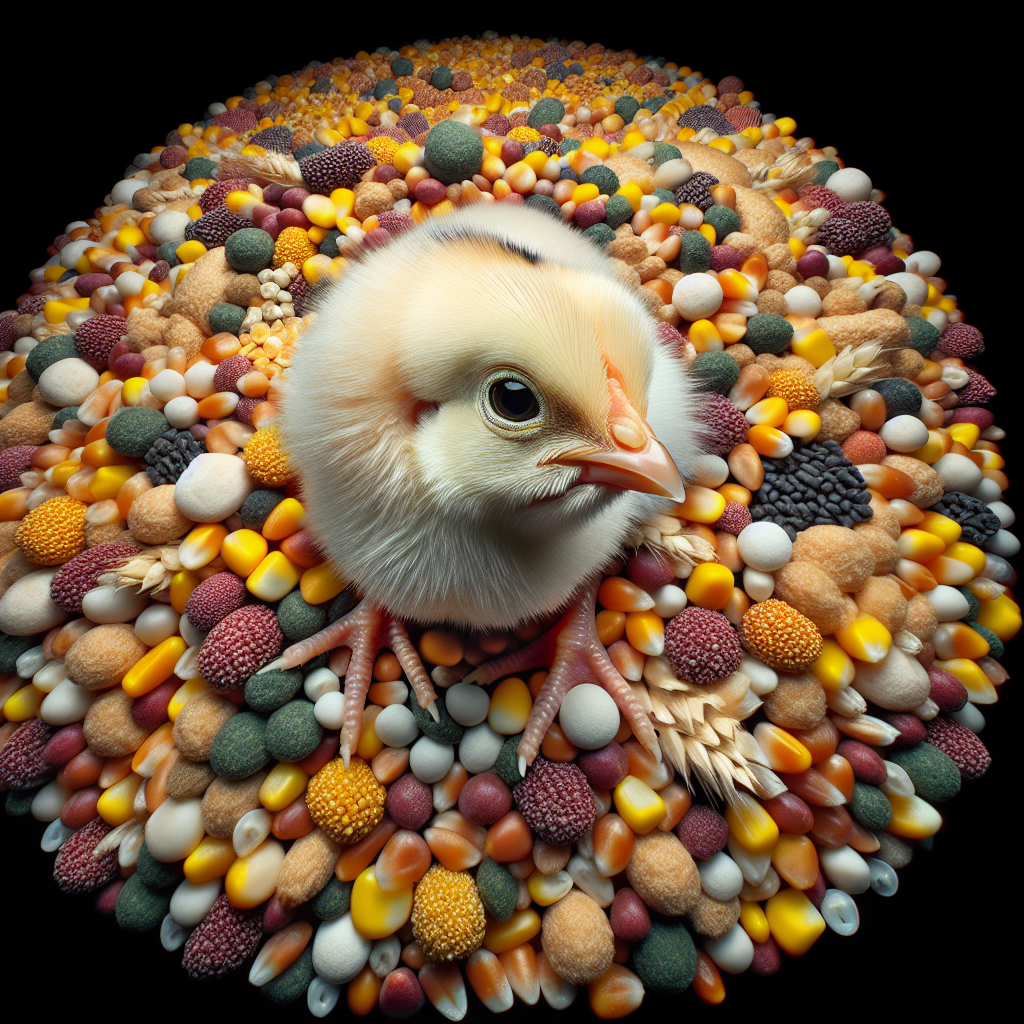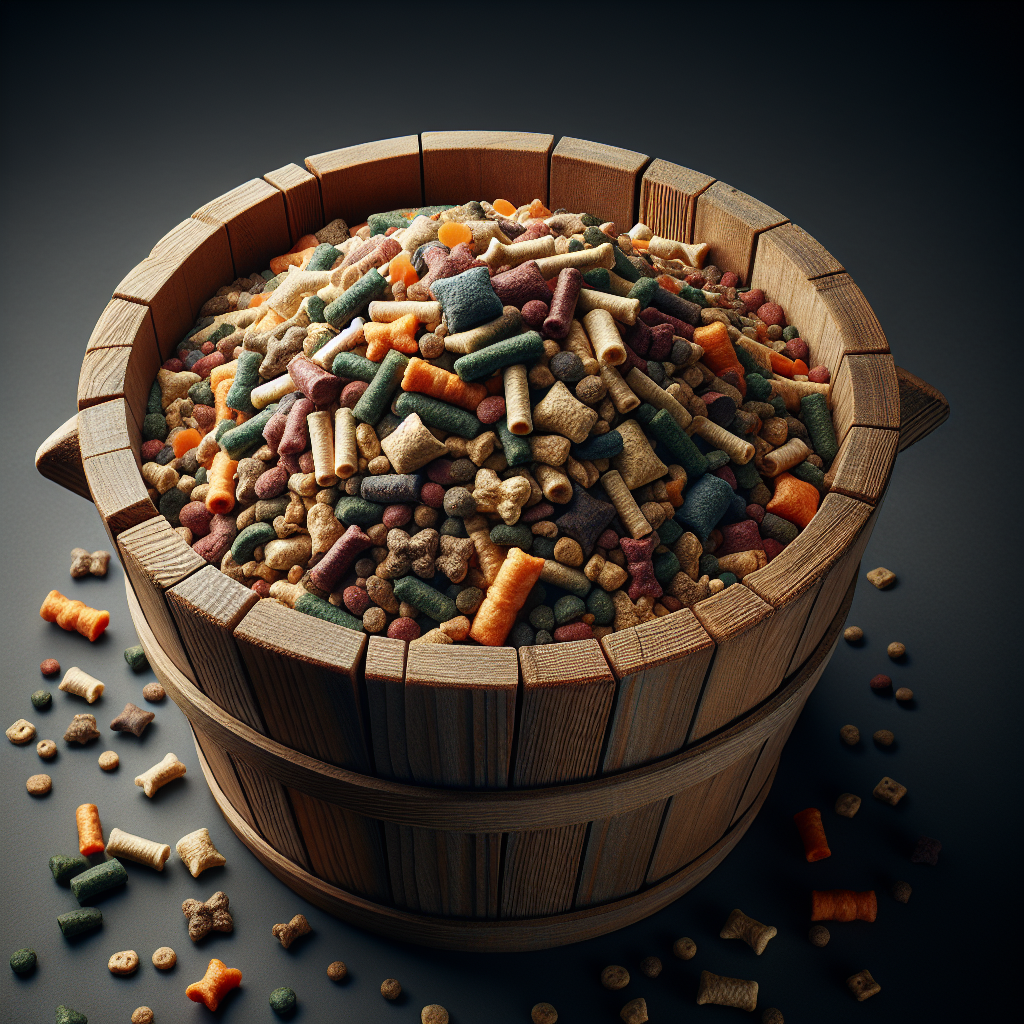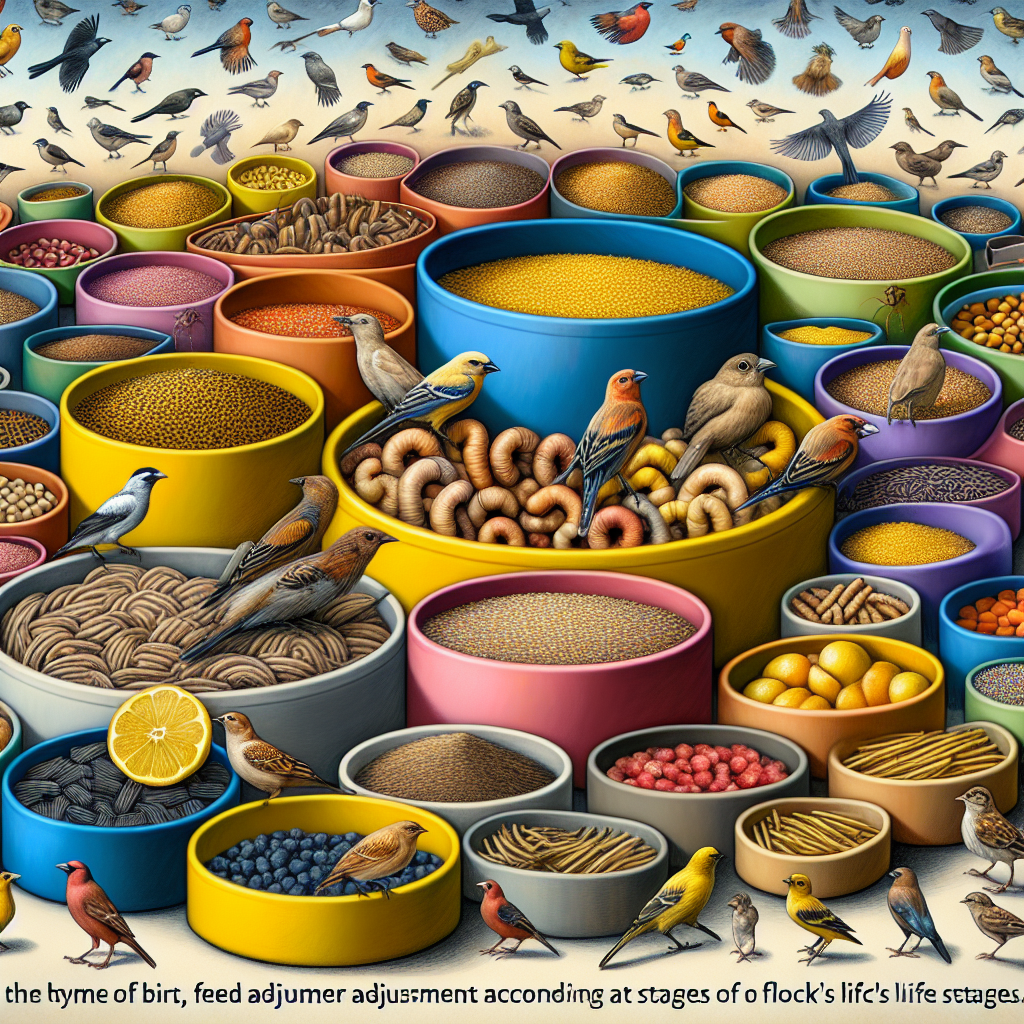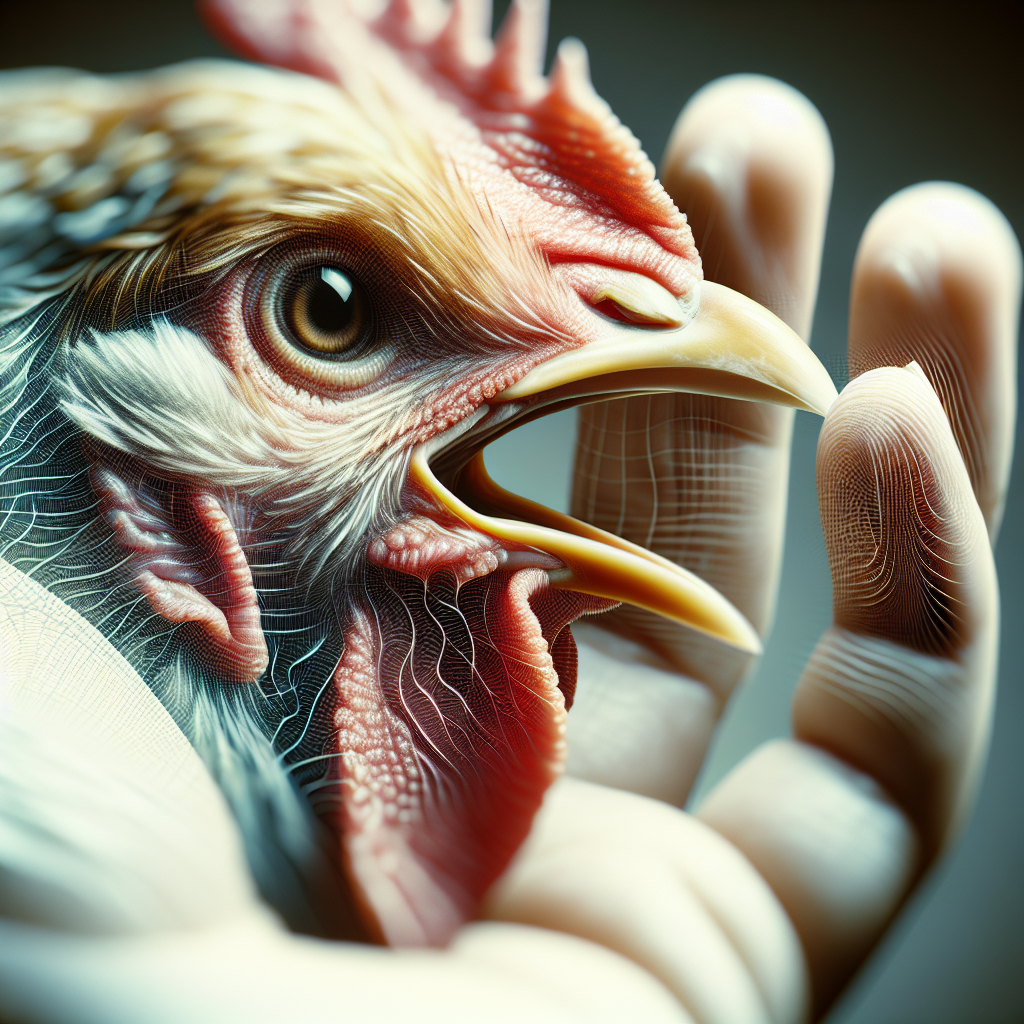In this article, you will explore the fascinating link between feed type and the growth rate of broilers or meat birds. As you delve into this topic, you will uncover the intriguing ways in which the food we provide to these birds can have a significant impact on their development. By understanding the various feed options available, you will gain a deeper appreciation for the role nutrition plays in optimizing the growth and overall health of broilers or meat birds. So, join us on this insightful journey as we uncover the secrets behind the influence of feed type on the growth rate of these remarkable creatures.
Overview of Broilers
Broilers are a type of poultry raised primarily for meat production. They are specifically bred to grow rapidly and efficiently convert feed into muscle. The term “broiler” refers to a chicken that is raised for meat, usually within a short period of time.
Definition of Broilers
Broilers are young chickens, typically under 10 weeks old, that are specifically bred and raised for meat production. They have a high growth rate, reaching their market weight quickly, due to their genetics and specialized feeding programs.
Importance of Broiler Production
Broiler production plays a crucial role in meeting the increasing demand for meat worldwide. The efficient growth and development of broilers provides a cost-effective source of protein for human consumption. Additionally, the broiler industry contributes significantly to the economy and provides employment opportunities in many regions.
Characteristics of Broilers
Broilers possess several key characteristics that make them ideal for meat production. They have a robust immune system, allowing them to thrive in various environments. Broilers exhibit rapid growth and efficient feed conversion, resulting in high meat yields. They also have a good meat-to-bone ratio, making them favorable for processing and consumption.
Factors Affecting Growth Rate
The growth rate of broilers is influenced by several factors, including feed type, nutritional composition of feed, feed quality and freshness, and feeding management practices. These factors play a crucial role in optimizing the growth and development of broilers.
Feed Type
The type of feed given to broilers at different stages of growth has a significant impact on their growth rate. Broilers are typically fed a combination of starter, grower, finisher, and supplementary feeds throughout their development.
Nutritional Composition of Feed
The nutritional composition of feed is essential in supporting the growth and development of broilers. It is important to provide the right balance of proteins, energy, minerals, and vitamins in the feed to meet the broilers’ nutritional requirements at each stage.
Feed Quality and Freshness
The quality and freshness of feed are crucial for optimal growth. Feed should be free from contaminants, molds, and spoilage. Any deterioration in feed quality can negatively affect the growth rate and overall health of broilers.
Feeding Management Practices
Feeding management practices, such as feed allocation and timing, feeding frequency, feeding space and equipment, and water provision, also play a vital role in broiler growth. Proper management ensures that broilers have access to fresh feed and water, promoting healthy growth and development.
Feed Types for Broilers
To support the growth and development of broilers, different types of feed are used throughout their production cycle. These feed types are specifically formulated to meet the nutritional requirements of broilers at different stages of growth.
Starter Feed
Starter feed is the initial feed given to broilers from day 1 until around 3 weeks of age. It typically has a high protein content, ranging from 20-24%, to promote early growth and development.
Grower Feed
Grower feed is fed to broilers from around 3 weeks until 6-8 weeks of age. It has a lower protein content compared to starter feed, typically ranging from 16-20%. This feed supports the continued growth and development of broilers as they transition into adolescence.
Finisher Feed
Finisher feed is provided to broilers from around 6-8 weeks of age until market weight, which is typically around 4-6 pounds. It has a lower protein content, usually ranging from 14-16%, as broilers focus more on muscle development and less on rapid growth.
Supplementary Feed
In addition to the primary feed types, broilers may also receive supplementary feed, such as corn or wheat, to meet their energy requirements and enhance their overall growth.
Impact of Feed Type on Growth Rate
Each feed type given to broilers at different stages of growth has a unique influence on their growth rate and overall development. Understanding the impact of these feed types is crucial for optimizing broiler production.
Starter Feed’s Influence on Growth
Starter feed, with its higher protein content, provides the essential nutrients needed for early growth and development. It promotes optimal muscle and bone development, laying the foundation for healthy growth throughout the broilers’ lifespan.
Grower Feed’s Influence on Growth
Grower feed, with its lower protein content, supports the continued growth of broilers during the adolescent stage. It helps maintain a balanced growth rate and prepares the broilers for the transition to finisher feed.
Finisher Feed’s Influence on Growth
Finisher feed, with a lower protein content, allows broilers to focus on muscle development rather than rapid growth. This feed type promotes the accumulation of lean muscle mass, resulting in a well-developed and high quality carcass.
Role of Supplementary Feed
Supplementary feed, such as corn or wheat, provides additional energy to broilers, ensuring they meet their daily dietary requirements. It can enhance growth rate and feed efficiency, resulting in improved overall performance.
Nutritional Requirements of Broilers
Meeting the nutritional requirements of broilers is essential for their growth, development, and overall health. These requirements, which include protein, energy, minerals, and vitamins, must be carefully balanced in their feed.
Protein Requirements
Protein is a crucial nutrient for broilers, as it is essential for muscle development and growth. Broilers require a sufficient amount of high-quality protein in their feed at each stage of growth.
Energy Requirements
Broilers need an adequate supply of energy to support their daily activities and growth. The energy requirements of broilers vary depending on their age, weight, and growth rate.
Mineral and Vitamin Requirements
Broilers have specific mineral and vitamin requirements to support their physiological functions and overall health. Minerals, such as calcium and phosphorus, are essential for bone development, while vitamins, including vitamin A and vitamin D, play vital roles in growth and immunity.
Feed Ingredients and Formulation
To meet the nutritional requirements of broilers, various ingredients are used in feed formulation. These ingredients provide the necessary proteins, carbohydrates, fats, vitamins, and minerals needed for optimal growth and development.
Major Feed Ingredients for Broilers
Feed for broilers typically consists of a combination of grains, oilseeds, protein sources, and vitamin and mineral supplements. These ingredients are carefully selected and blended to meet the specific nutritional needs of broilers.
Protein Sources
Protein sources, such as soybean meal, fish meal, and poultry by-product meal, provide the essential amino acids required for muscle development and growth in broilers.
Carbohydrate Sources
Carbohydrate sources, such as corn and wheat, supply energy to broilers and serve as a source of dietary fiber. They contribute to the overall energy balance and support healthy digestion.
Fat Sources
Fat sources, including vegetable oils and animal fats, are added to broiler feed to increase energy density and improve feed palatability. They also play a role in vitamin absorption and provide essential fatty acids.
Vitamin and Mineral Supplements
Vitamin and mineral supplements are added to broiler feed to ensure they receive all the necessary nutrients for optimal growth and health. These supplements help bridge any nutritional gaps in the feed ingredients.
Feed Quality and Freshness
The quality and freshness of feed are crucial factors in broiler production. Feed must meet specific criteria to ensure it supports healthy growth and development.
Criteria for Feed Quality
Feed quality is determined by factors such as ingredient sourcing, manufacturing processes, and adherence to industry standards. Good quality feed should be free from contaminants, molds, and toxins, and provide the necessary nutrients for broilers.
Effect of Feed Freshness on Growth Rate
Fresh feed is essential for optimizing growth rate in broilers. Stale or spoiled feed can have a negative impact on broiler health and performance. It is important to store and handle feed properly to maintain its freshness and quality.
Feeding Management Practices
Proper feeding management practices are crucial for maximizing broiler growth and performance. These practices encompass feed allocation and timing, feeding frequency, feeding space and equipment, and water provision.
Feed Allocation and Timing
Broilers should be provided with an appropriate amount of feed based on their age, weight, and growth rate. Feed should be evenly distributed and readily available to ensure all broilers have access to their nutritional requirements.
Feeding Frequency
The frequency of feeding plays a role in broiler growth. Broilers are typically fed multiple times a day to meet their high energy requirements and promote consistent growth. Regular feeding intervals help optimize nutrient absorption and utilization.
Feeding Space and Equipment
Sufficient feeding space and proper equipment are necessary to prevent competition and promote even feeding. Each broiler should have enough space to comfortably consume their feed without being hindered by others.
Water Provision
A constant supply of clean and fresh water is essential for the health and growth of broilers. Water should be readily available at all times, and proper water management practices, such as regular cleaning and monitoring of water quality, should be followed.
Effects of Feed Type on Carcass Characteristics
The type of feed given to broilers can influence the characteristics of their carcasses, affecting meat yield, carcass composition, and meat quality.
Meat Yield
Different feed types can impact the overall meat yield of broilers. Well-formulated feed can promote efficient muscle development and contribute to a higher meat yield.
Carcass Composition
Feed type can also affect the composition of broiler carcasses, particularly the ratio of meat to bone. Properly balanced feed promotes the accumulation of lean muscle mass and a desirable meat-to-bone ratio.
Effect on Meat Quality
The type of feed given to broilers can impact the quality of their meat. Well-formulated feed results in tender, flavorful, and nutritionally dense meat, meeting consumer expectations.
Comparative Analysis of Feed Types
Different feed types have been widely studied and compared to assess their performance and cost-effectiveness in broiler production.
Performance of Broilers on Different Feed Types
Studies have shown that well-formulated feed, tailored to the specific needs of broilers at each stage, can significantly improve performance indicators such as growth rate, feed conversion ratio, and carcass quality.
Cost-effectiveness Analysis
Evaluating the cost-effectiveness of different feed types is essential for decision-making in broiler production. This includes considering factors such as feed ingredient cost, growth rates, feed efficiency, and market demand for the final product.
In conclusion, the feed type given to broilers at various stages of their growth has a significant impact on their growth rate, carcass characteristics, and overall performance. Proper selection and formulation of feed, along with appropriate feeding management practices, are crucial for optimizing broiler production and meeting the increasing demand for high-quality meat. By understanding the specific nutritional requirements and growth characteristics of broilers, poultry producers can ensure the health, welfare, and profitability of their flocks.




